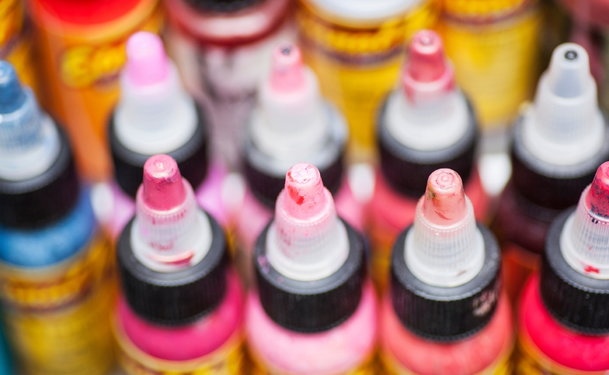You've scoured the Internet or popular tattoo magazines for months, maybe even years, and have found the perfect image you want tattooed on your body. And now that you've pinpointed a tattoo artist, you are ready to take the leap and join the millions of Americans who have tattoos. But before you go, do your homework and understand the risks associated with tattoo ink.
What you should know before you get inked?
According to the U.S. Food and Drug Administration's website, "while state and local authorities oversee the practice of tattooing, ink and ink colorings (pigments) used in tattoos are subject to FDA regulation as cosmetics and color additives. However, because of other public health priorities and a previous lack of evidence of safety concerns, FDA has not traditionally regulated tattoo inks or the pigments used in them." Rather, the administration has delegated tattoo industry regulation to state or county jurisdiction.
However, in 2014, the administration stepped in and issued a warning to tattoo parlors and those purchasing at-home tattoo kits after White and Blue Lion Inc. recalled inks found in in-home kits—testing confirmed bacterial contamination in unused, unopened bottles.
Although at least one skin infection was linked specifically to the company's inks, the administration confirmed that it is aware of other infections that have been linked to other tattoo inks. In 2011, more than 15 people in Rochester, NY, had bubbly rashes on their new tattoos. The adverse reaction was caused by contaminated water used to dilute the ink.
While most infections are acquired from dirty needles and unsanitary environments or practices, ink can carry bacteria that leads to infection, and these infections can be accompanied by bumpy skin, redness, blisters, discharge, swelling and pain at the site.
Additionally, tattoo inks may contain chemicals—oxides, sulphides, metallic salts, and selenides—known to cause mutations, birth defects or cancer.
Are some more at risk than others?
Even the healthiest person can acquire an infection from tattoo ink; however, those who have diabetes, a compromised immune system, or heart or circulatory disease are at greater risk for infection and other adverse effects. Bad reactions, according to the FDA, may not present right after tattooing; they may not appear until years later.
How you can better protect yourself
Aside from choosing a reputable tattoo artist, you can better protect yourself by:
- Ensuring the needle used to apply the tattoo is properly sterilized
- Ensuring the working environment is clean
- Researching the inks that are going to be used. The ink bottles should have a brand name and a location of the business that manufactured it.
- Speaking with your physician to confirm there are no conditions (i.e. diabetes) that could put you at greater risk for infection.


